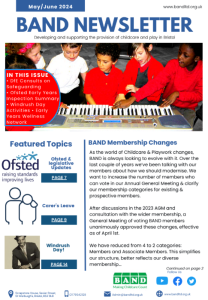
Looking for an activity theme over the next few months? How about focusing on space to celebrate the European Space Agency’s (ESA) six month ‘Principia’ mission.
The mission began in December 2015 when ESA Astronaut Tim Peake, NASA Astronaut Tim Kopra and  Russian Cosmonaut Commander Yuri Malenchenko arrived at the International Space Station (ISS). Tim is the first professional British Astronaut to go into space and, according to ESA, he will be working on lots of experiments, including growing crystals in space and seeing how the human brain changes to deal with stressful situations
Russian Cosmonaut Commander Yuri Malenchenko arrived at the International Space Station (ISS). Tim is the first professional British Astronaut to go into space and, according to ESA, he will be working on lots of experiments, including growing crystals in space and seeing how the human brain changes to deal with stressful situations
Tim hopes that his Principia mission will inspire children to discover more about space, so here are some ideas and resources to get you started:
Celebrate women in space: Tim is the first British Astronaut in space but Dr Helen Sharman was first British person in space. Helen is a British chemist and was the first woman to visit the Russian Mir space station in 1991. No woman has set foot on the moon yet– can you right this in your setting? Create a mixed gender crew to get the first female up to the moon!

Train like an astronaut: NASA has a large number of resources to encourage children to get fit and improve coordination by training like an astronaut. There are mission handouts and videos of astronauts explaining why fitness and each particular activity is important and children are encouraged to measure their progress in a mission journal. Ideas on the website include agility astro courses and practising crab walking to ensure you can complete a space walk. There is also a section on useful adaptations to activities to ensure that all children can join in.
http://www.nasa.gov/audience/foreducators/trainlikeanastronaut/activities/index.html
NASA also has a kids section with downloadable colouring sheets and other activities.
http://www.nasa.gov/audience/forkids/kidsclub/flash/index.html
Create your own space suit: Have a selection of scrap material and encourage children, in teams, to create their own space suit. It needs to be as warm and as protected from cold as possible to protect astronauts from the extreme cold in space! Astronauts also have a kind of notebook on their arm with useful instructions in and a mirror so that they can look up into their helmet and check everything is ok. What will children in your setting have as their instructions? Tim took a photo of his children out on his first space walk so that they could be in space with him. Who will children in your setting choose to take into space with them?
Make rocket packs: Use 2 litre drinks bottles, spray paint them silver and use a glue gun to attach felt

or paper flames. Fuller instructions are here! http://www.doodlecraftblog.com/2012/04/super-sci-fi-rocket-fueled-jet-pack.html
Design your own mission badge: The ‘Principia’ mission badge was designed by a 13 year old; what can children in your setting devise?
Earthly Facts!
Earth is the 3rd planet from the Sun and is the largest of the terrestrial planets. It is the only planet in our solar system not to be named after a Greek or Roman deity. It was formed approximately 4.54 billion years ago and is the only known planet to support life.
Try to remember the planets in our solar system with this easy sentence: My Very Easy Method Just Speeds Up Naming (Mercury, Venus, Earth, Mars, Jupiter, Saturn,Uranus and Neptune). Or why not make your own solar system – just google it!
Experiment like an astronaut: pick some science experiments to try on gravity, force, growing food! Astronauts on ISS will be carrying out a range of science experiments so any will do. See our article on British Science Week for ideas!
Websites: Follow Tim’s progress on Facebook: https://www.facebook.com/ESATimPeake/
The European Space Agency website has a kids section with lots of information and they run a monthly drawing competition as well – maybe your setting could enter! http://www.esa.int/esaKIDSen/index.html
Japanese Space Agency http://iss.jaxa.jp/kids/en/index.html
This article is an extract from the February ’16 issues of BAND News – our member newsletter which appears 6 times a year, with Playwork news, updates and practice ideas for Bristol Practioners – another of the benefits of BAND Membership
Posted on



